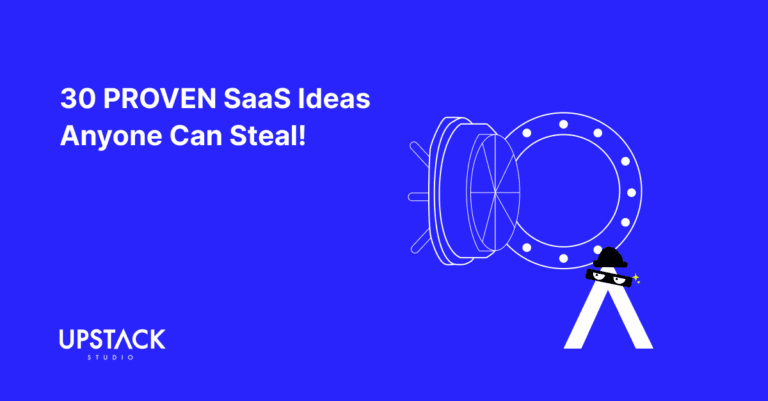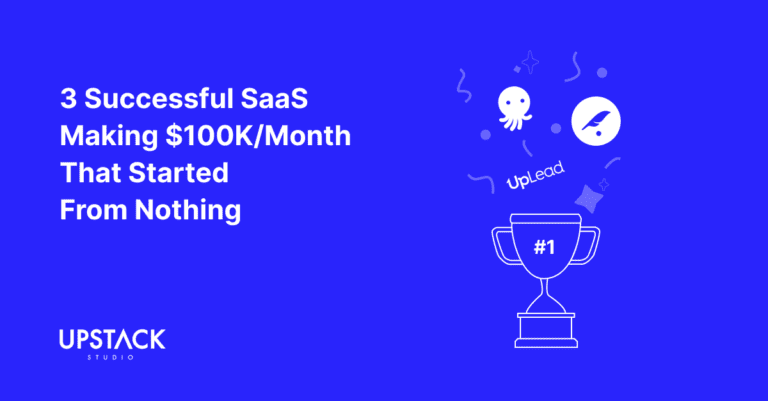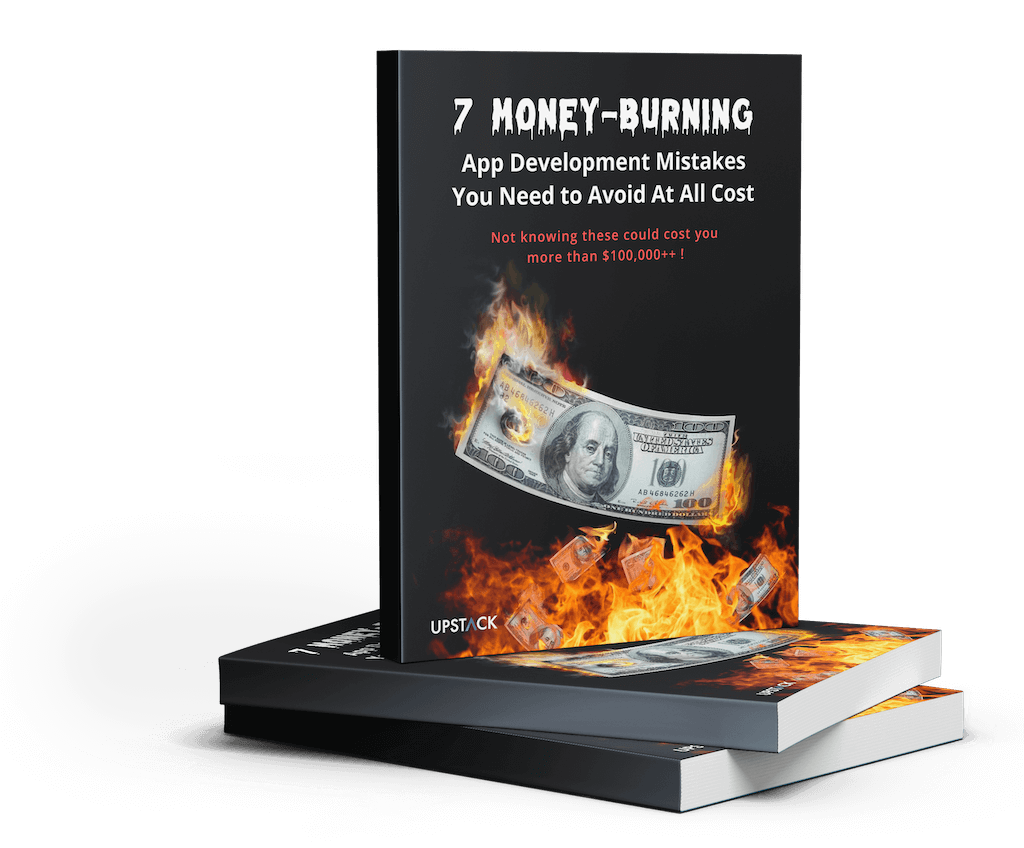The SaaS world is full of failed business ideas
Here’s a sobering statistic: 92% of all SaaS businesses fail within 3 years.
The SaaS startup game is brutal – you might call it a di-SaaS-ter!

It’s already hard – why make it even harder?
And so, knowing that most SaaS business ideas only had an 8% chance of succeeding, we would avoid these 4 software business ideas.
Our experience says these SaaS are bad business ideas
As mobile app developers, Upstackers work with founders acros a few verticals.
We’ve consistently seen that some businesses are just a pain in the ass for the average founder to build, grow, or both.
That’s the basis of this post – sharing four software business ideas that we would personally avoid knowing how challenging they are.
For each entry, we’ll give a key reason why each SaaS is a bad business idea – followed by an “unless”.
The unless is a condition that makes you an exception to the rule.
And so, the full picture is that these are bad business ideas unless you meet certain requirements.
Let’s get into the first entry.
Two Sided-Marketplaces
All marketplaces share one thing in common: They facilitate buyer-supplier transactions.
A marketplace makes transactions safer, more convenient, private, or in some cases, a marketplace is what makes the transaction possible at all.
It can seem like an easy option since it’s fairly straightforward to build a marketplace app.
Why it’s a bad business idea
In a typical SaaS, you focus on one target audience: your users.
In a marketplace, you focus on two audiences: buyers and suppliers.
The UX is different for each, so twice the testing, iteration, validation, debugging, and user support.
Then you gotta build up both audiences simultaneously – this is known as the network effect.
Buyers only browse your platform if there’s enough supply, and suppliers only sell on your platform if there are enough buyers.
Building momentum with two audiences from zero is extremely difficult.
Unless
Option 1: You pay the supply side while you build the demand side. Think Uber incentivizing drivers to quit their jobs and drive full time (you’ll need serious money for this).
Option 2: You own OR can partner with a business that can inject enough initial buyers.
This is actually a total boss move because then you make money from your competitors.
Example: Linebooker is a South African logistics company that added a marketplace service on top of that so other transporters could register and advertise on their platform.
They can now profit even from other suppliers.
FinTech, Healthcare, & Legal Services
Most software and apps store anonymous user data in some form or other.
But apps under certain verticals like finance, healthcare, and legal services deal with personal data – real information about people that should be kept confidential.

It’s one thing to have a database of random usernames and passwords, but when you start collecting personal data, you’re entering a whole new world.
Why it’s a bad business idea
Say hello to statutory compliance – government legislation outlining how your software must protect the data collected.
For example, in our home country Malaysia, we have the Personal Data Protection Act.
The EU has the General Data Protection Regulation or GDPR.
Your software must comply with 100% of the rules, 100% of the time.
And for good reason: these apps are a target for hackers.
Break the rules, even unknowingly, and you could face legal action like the founder of DoNotPay, who got threatened with prison time for offering AI-powered legal counsel.
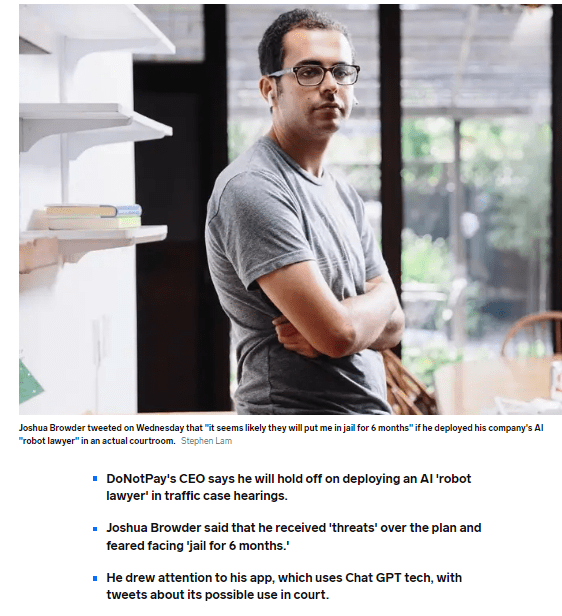
Legislation and data breaches are a pain and we suggest letting this software business idea go.
Unless
You do have a financial or legal background and you’re familiar with relevant laws in your country.
And you can instruct your developers on what you need – they won’t know!
Productivity-based apps
Oh boy, this group of apps are ironically one of the least productive ways you could use your time as a founder.
They include, but are not limited to:
- Notetaking apps
- Journaling apps
- Calendars and schedulers
- Reminders and to-do list makers
- Meditation apps
- Bullshit stretching apps
- Document scanners
- Workout planners
- Budgeting apps, and
- Task management apps
We just threw shade on half of Google App Store – shows just how saturated the space is.
Why it’s a bad business idea
To be competitive, you’ll need more – a lot more – than a good product.
Case in point: Flow – a task management SaaS founded in 2009.
Along came a competitor two years later called Asana,
Asana started out inferior to Flow, but they were backed by venture capital funding.

With the money, Asana soon beat Flow at everything.
Flow founder, Andrew, shared the story in a series of Tweets.
All in all, Flow lost $10 million.

We encourage you to read Andrew’s story in full, but here are the takeaways:
- Productivity apps with no competitive advantage are too common.
- Starting small works best in uncompetitive spaces/niches.
- If you are in a competitive VC-funded space, don’t compete without comparable funds
- Ultimately, unless you have a competitive edge or millions in funding, your productivity app is likely to end up just one more failed business idea.
It’s very difficult to make a productivity based software that hasn’t been done before.
And there’s always a better funded competitor waiting to choke you out of the market.
In our humble opinion, your time is better spent looking for more niche problems.
Unless
You’re releasing the app or software for free to build brand awareness and generate leads to sell something else.
Say you’re a dentist.
Option 1: Your app reminds people to brush their teeth three times a day. That’s three times people are reminded you exist.
Option 2: Your app also asks them if their teeth hurt. If they say yes, the app invites them to your office for a face to teeth consultation.
Social Media Apps
Reddit, Twitter, Facebook, Instagram, Threads, and humanity’s favourite toilet bowl – TikTok.
Just some examples of the biggest social media platforms today.
Different niches, but three things they share:
- User-generated content is their lifeblood: posts, comments, photos, videos, and just about any form of public interaction with the platform and each other
- User profiles that can publicly link users and actions/interactions.
- They all primarily rely on ad revenue because people expect social media to be free.
Each has a specific focus and loyal users.
Why it’s a bad business idea
The first challenge with a new social media platform is thinking of a new, never before seen form of social interaction that can attract a crowd – because ad revenue.
But if marketplaces are difficult because of two audiences, a social media app has 2 bajillion audiences.
And some of them hate each other, so you’re a prison warden making sure inmates behave and don’t scare off advertisers.
Unless
You have an idea for a new form of social interaction and you’re ready to do some guerilla marketing.
That means unconventional strategies and downright weird shit that raises interest in a specific product.
For inspiration, look up Nikita Bier and his Gas app that lets users anonymously compliment friends.
Here’s how the ingenious marketing campaign behind Gas happened:
- Nikita created Gas accounts with real high school names on Instagram.
- These accounts started receiving requests from high school students that went there.
- The requests were left to pile up.
- Then on launch day Nikita accepted everyone.
- When the students visited the IG account, they saw this message with a link to download Gas:
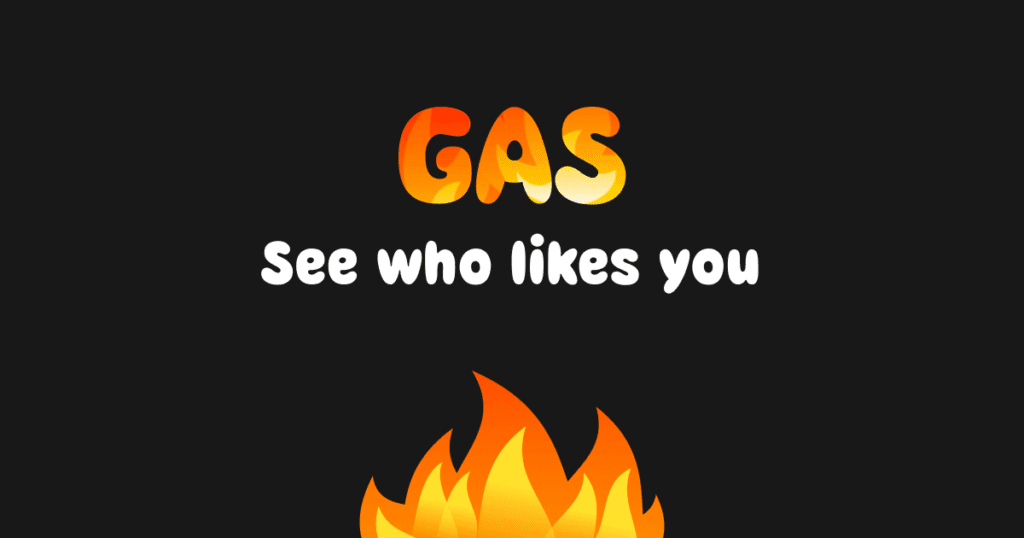
Nikita had basically monetized teenage hormones.
In just 10 days, he was adding 30,000 new users per hour.
It worked amazingly well for Gas, and probably only would have worked for Gas.
Signs of challenging software business ideas
Based on what we just looked at, we would personally avoid anything that:
- Requires a network effect
- Faces VC-backed competition
- Has no economic MOAT – more on that later
- Requires legal expertise I don’t have
- Deals with personal data
Instead, an ideal SaaS idea is pretty much the opposite:
- An unsaturated niche market
- One specific target audience to connect with
- No personal data collection
- No legal expertise needed
- No free alternatives
These constraints limit you, but limits are good if they help avoid your software business ideas in becoming yet another failed startup.
Then again, maybe it’s the perfect challenge for you
Remember how each entry had an ‘unless’?
If you meet that unless you have what’s called an economic moat.
A moat is your competitive edge; something you have that others don’t.
For example, with marketplaces, if you can partner with an existing business that has a large customer base, then you have a significant advantage in making your marketplace app a success.
While it will still be challenging, in this case, we think you have justification to go for it.
What software business ideas do Upstack Studio recommend?
We won’t always have a ready-made economic moat.
So, create your moat and fortify it!

All it takes is some knowledge which you can get by researching different verticals and how founders made their software business ideas work.
Sometimes it’s about being methodical.
Sometimes it’s about specific partnerships.
Once you’re ready to come up with a software idea, you can filter them to avoid the challenging ones.
🔑 Key Takeaways
- An overwhelming majority of SaaS startups will end up failing in their first few years.
- Some SaaS business ideas are extra challenging unless specific requirements are met.
- Marketplaces are difficult as you need to build two audiences simultaneously, unless you already have one side built up.
- Verticals like fintech, healthcare, and legal services often include storing personal data which requires complying with very strict government legislation.
- Productivity apps like task management tools are a dime a dozen and the space is dominated by VC-backed giants.
- Social media apps need even more audience building and with established giants in the space, needs unconventional marketing and a valid niche to be successful.
- Of course, if you are determined to pursue these SaaS business ideas, be sure to have a competitive advantage.
- The best SaaS business ideas involve an unsaturated niche market, one target audience to connect with, no personal data collection, no legal expertise needed, and no free alternatives on the market.
- Ya’ll know this is just our opinion, right?
Hey there stranger, thanks for reading all the way to the end. Consider joining our mailing list for a one-stop resource on everything from micro SaaS validation all the way to execution and promotion. Get a nifty list of questions to ask app developers when you sign up!
App Developer Interview Questions Template
Download this template now so you know exactly what to ask App Development Agencies! Let us know where should we send it through the form below.

